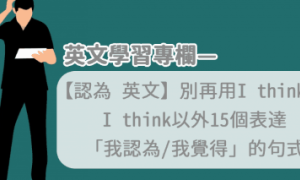abound in, abound with
这两个短语都含有“盛产”“富于”的意思,它们的区别是:
1.abound in可以物作主语,表示“某物盛产于(某地)”,也可以表示地点的名词作主语,表示“某地盛产(某物)”。即介词in的宾语可以是“某物”,也可以是“某地”。但abound with只表示“某地盛产(某物)”,即主语只能是“某地”,介词with的宾语只能是“某物”。例如“这小溪里鱼很多。”可说This stream abounds in fish. 也可说Fish abounds in this stream. 还可以说This stream abounds with fish.但不可说Fish abounds with this stream.
2.abound in含有“以盛产…为特色”的意味。This stream abounds with fish.只是说“这小溪里鱼很多”,而This stream abounds with fish.则意味着“这小溪以盛产鱼著称”。“此地多铁矿”最好说This district abounds in iron ores. 而“此地多鼠”则最好说This district abounds with rats。
3.abound in还可以人作主语,用来说明品质、气质等,如He abounds in courage.(他天性勇敢。); 这里的in不可换作with。
4.表示老鼠、害虫之类有害之物大量出没时宜用abound with; abound in有时也可含有嘲弄的意味,如That government abounded in broken promises. 那个政府开的空头支票多得很。
5.abound with还含有“供给充足”的意思;而abound in没有这个意思。
6.英式英语中abound in和abound with都常用;而美式英语中较少用abound with。
abound,overflow,swarm,teem
这四个词都含有“丰富”的意思,且都与介词with连用,它们的区别是:
(1)abound表示数量充足,侧重“丰富”;teem和swarm表示“到处都是”“熙熙攘攘”,teem侧重“充满活力”;swarm侧重“运动”即大批出没;overflow则强调超过自身所能容纳的范围。
(2)abound常可用以指事物的特性;swarm更适合表示害虫或盗贼成群出没;overflow有时含“充斥”之义。
例如:
That region abounds with rain all the year round.那个地区终年多雨。
Rome teems with tourists in the summer.夏日的罗马游客熙熙攘攘。
The house swarmed with flies.屋里到处是苍蝇。
The market overflows with goods.市场上货物充足。
Fish teem in Chinese waters./Chinese waters teem with fish.中国近海渔产丰富。
His head teem with bright ideas.他满脑子聪明主意。
The lake side teemed with mosquitoes.湖边蚊子很多。
Rome teems with tourists in the summer.夏日的罗马游客熙熙攘攘。
Tozeur has a railway station and positively teems with French officials.托泽尔有一个火车站,显然还有很多法国官员。
The beach is swarming with bathers.海滩满是海浴的人。
The marketplace swarmed with buyers and sellers.市场上挤满了买东西和卖东西的人。
The house swarmed with flies.屋里到处是苍蝇。
The swamp swarms with mosquitoes and other insects.沼泽地到处都是蚊子和其他小昆虫。
He is overflowing with sympathy.他满怀同情。
He overflows with good nature.他心眼儿好。。
My heart is overflowing with hapiness.我的心里充满欢乐。










